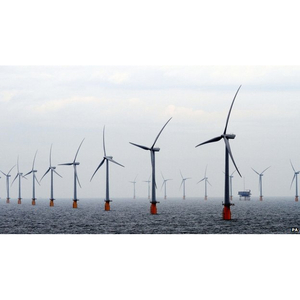Eight renewable energy projects approved
Eight renewable energy projects approved
Eight new energy renewable projects have been introduced by the government which is expected to support over 8,500 jobs. Within these eight projects there includes an offshore wind farm project and the conversion of coal powered plants to run on biomass projects.
Energy Secretary Ed Davey said the projects would help power up to three million homes and they are expected to attract over £12bn in private investments.
All these projects will all receive a contract from the government known as ‘Contracts for Difference’ which will guarantee prices for the renewable energy suppliers.
These could cost up to £1bn each year in subsidies, but the government says they would encourage firms to invest much more than that in low-carbon electricity generation.
The approved schemes include offshore wind farms in Liverpool bay, and off the Moray, Norfolk and Yorkshire coasts.
Mr Davey said there were more potential renewable energy projects than the government was able to back, and if one of the eight initial projects did not go ahead, then another similar project would be supported.
There were 57 original applications for backing however they were narrowed down to these eight:
- Beatrice offshore wind, Outer Moray Firth
- Burbo Bank offshore wind, Liverpool Bay
- Drax 3rd biomass conversion unit, Selby
- Dudgeon offshore wind, north of Cromer
- Hornsea offshore wind, off the East Yorkshire coast
- Lynemouth biomass conversion, Ashington, Northumberland
- Teesside biomass with combined heat and power, Middlesbrough
- Walney extension offshore wind, off Walney island
Mr Davey pointed out that the investments from the public and private investors are critical to ensuring that secure clean energy is readily available. The new energy will also add more than 5% to the UK clean energy supply.
The problem with these eight projects is that they will add 2% onto household energy bills by 2020 when it is hoped that over 30% of electricity will come from renewable sources.
The Department of Energy and Climate Change (Decc) said it expected the investment contracts for the successful projects would obtain parliamentary approval in May 2014, when they would then take legal effect.
Read more at: http://www.bbc.co.uk/

